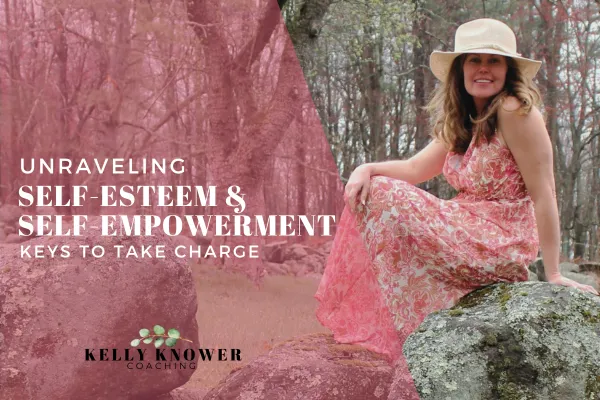

Unraveling Self-Esteem and Self-Empowerment: Keys to Taking Charge of Your Life
Unraveling Self-Esteem and Self-Empowerment: Keys to Taking Charge of Your Life
In the quest for personal growth and happiness, two concepts often arise: self-esteem and self-empowerment. While they may seem like different terms for the same idea, they are, in fact, distinct elements that play pivotal roles in how we navigate our lives.
Self-Esteem: The Foundation of Self-Belief
Self-esteem is the inner voice that narrates how much we believe in ourselves and our abilities. It's the confidence that comes from within, whispering that we are capable of achieving greatness. It's seeing the value in ourselves even when faced with setbacks. High self-esteem is like a shield, offering us resilience in the face of life's challenges and the courage to strive for our goals.
Self-Empowerment: The Action-Oriented Twin
Self-empowerment, on the other hand, is the practical and active sidekick to self-esteem. It's about taking that belief in ourselves and turning it into action. It means taking control, making decisions, and steering our lives in the direction of our dreams and aspirations—unapologetically. It's the driving force that moves us from "I can" to "I will."
So, how can we cultivate these two pillars of personal development and take charge of our lives? Here are some actionable steps:
Reflect on Your Strengths and Achievements: Begin by making a list of your strengths and past successes. This practice will help build your self-esteem by reminding you of your capabilities and the obstacles you've already overcome.
Set Personal Goals: Clearly define what you want to achieve. Goals give you a roadmap to channel your self-empowerment into tangible results. Remember, the most empowering goals are those that are aligned with your values and purpose.
Embrace Self-Compassion: Understand that self-esteem is not about being perfect. Treat yourself with kindness and recognize that everyone has flaws. Self-compassion reinforces self-esteem by nurturing a more positive and forgiving self-view.
Assert Boundaries: Empower yourself by setting and enforcing healthy boundaries in your relationships and professional life. This step is crucial in taking charge and not allowing others to dictate the terms of your life's journey.
Seek Knowledge and Skills: Equip yourself with the knowledge and skills necessary to accomplish your goals. Lifelong learning boosts both self-esteem and self-empowerment by increasing your competence and confidence.
Take Responsibility for Your Decisions: Self-empowerment is about owning your decisions, including the outcomes they produce. This means celebrating your victories and learning from any missteps without self-judgment.
Practice Self-Advocacy: Speak up for yourself and your needs. Self-advocacy is a powerful form of self-empowerment because it involves actively working to improve your situation.
Engage in Self-Care: Prioritizing your well-being is both a product of self-esteem and a contributor to self-empowerment. You can't fully take charge of your life if you're not also taking care of your mental and physical health.
By understanding and developing both self-esteem and self-empowerment, you create a synergistic effect that propels you forward. Self-esteem is your belief in your worth, while self-empowerment is the ability to act on that belief. Together, they form a dynamic duo that can lead you to a fulfilling and autonomous life.
As you journey through life, remember that self-esteem and self-empowerment are muscles that grow stronger with use. So flex them daily, take charge, and craft the life you've always desired.
